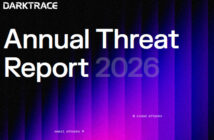
 In their submission to an Inquiry into the Protection of Crowded Places in Western Australia, conducted by the Community Development and Justice Standing Committee, Don Williams and Anthony Bergin observed “the security licencing system is not relevant to those who provide management level advice on protective and response measures. Security is a management discipline with its own body of knowledge, research and literature. Those responsible for protecting crowded places should recognise that formal qualifications and certifications exist and should use appropriately qualified professionals to develop the required capabilities.” In addition, the submission proposes; “that rather than seeking ‘best practice’, consideration could be given to assessing ‘good practice’ i.e. one that provides for a safe, secure and suitable environment through effective communication between government and corporate sectors; well-trained aware and empowered staff; effective and site specific and applicable plans and procedures.”
In their submission to an Inquiry into the Protection of Crowded Places in Western Australia, conducted by the Community Development and Justice Standing Committee, Don Williams and Anthony Bergin observed “the security licencing system is not relevant to those who provide management level advice on protective and response measures. Security is a management discipline with its own body of knowledge, research and literature. Those responsible for protecting crowded places should recognise that formal qualifications and certifications exist and should use appropriately qualified professionals to develop the required capabilities.” In addition, the submission proposes; “that rather than seeking ‘best practice’, consideration could be given to assessing ‘good practice’ i.e. one that provides for a safe, secure and suitable environment through effective communication between government and corporate sectors; well-trained aware and empowered staff; effective and site specific and applicable plans and procedures.”
Such a set of circumstances is not isolated to Western Australia. It is the case in all jurisdictions. Governments, Federal and State, are clearly behind and increasingly they are coming to admit the fact. In my interviews with Austrac at the Austrac Codeathon, part of the ASEAN in Australia Summit, the regulator confirms that the fast pace of technological change and innovation is outstripping Government’s capabilities and they’re turning to the private sector and regional partners for assistance and collaboration. Likewise, legislative changes in data protection and breach notification in Australia and Europe in the first half of this year is driving much of the news. Cybersecurity will continue to increase in sophistication with use of automation, behavioural analytics and autonomous systems both in the protection of networks and systems, as well as how they are attacked and breached…Click here to read full article.






